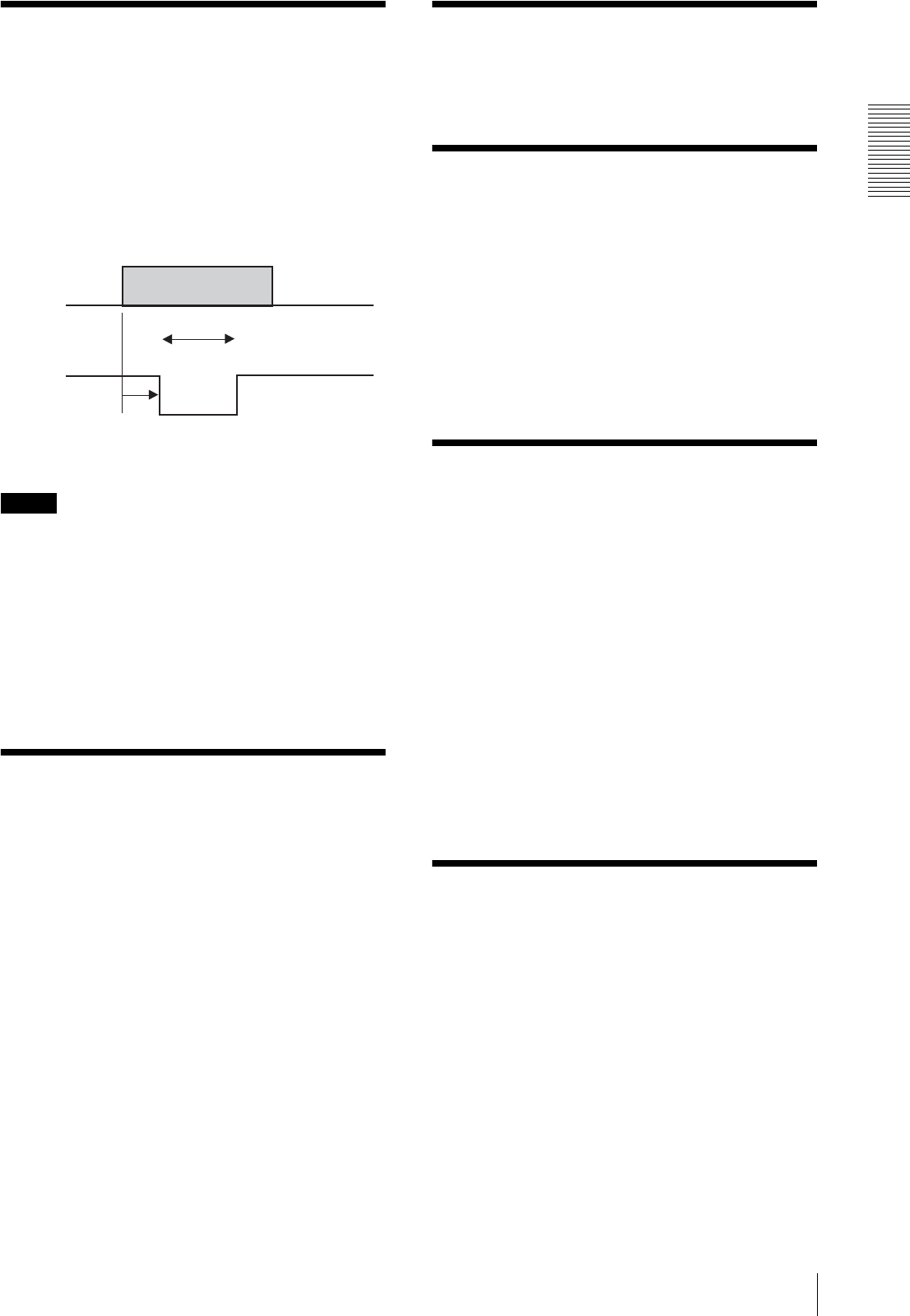
Functions
13
Strobe Control
A strobe control signal is assigned in the 12-pin
connector. This allows direct command of light-
emission from the strobe connected to the camera and
controls the light-emission timing and the signal width.
The output terminal is of the open-collector type and
should be pulled at the strobe side. A strobe that emits
light by short-circuiting the input to ground can be
connected to the camera directly.
Note
Use the following conditions:
Recommended pull-up resistor: 4.7 kΩ
Recommended pull-up voltage: 5 V
The camera is equipped with a protective resistor of 220
Ω. If the above conditions prove difficult in use, check
the output voltage and determine the external pull-up
resistor. The camera is capable of outputting a signal of
about 10 microsecond width, although the rise time
depends on the pull-up resistor.
Setting AE/AWB Control
Frame and Parameters
The detection frame for Auto Exposure and Auto White
Balance can be set.
Determine the detection frame in percentage units
taking the width and height of the output image as 100
%.
The control speeds for Auto Exposure and Auto White
Balance can also be set. Raise or lower the response
speed for each application respectively.
For Auto Exposure, the restart conditions can also be
set, that is the conditions once Auto Exposure
adjustment has concluded and after the gain and shutter
changes have been restored to a stable state, and a new
change in video image becomes visible.
In the Auto Exposure or Auto White Balance parameter
setting mode, the set frame is highlighted on the video
image.
Test Char ts
A color bar chart (for color models only) and a gray
scale chart can be output.
Changing Bayer
Patterns (Color models
only)
The color models of this camera series output raw data.
For these models, the correct color reproduction is not
obtained if the Bayer pattern in the application software
does not match that in the camera. The output pattern
can be set at the camera if the application is not equipped
with the pattern setting.
Trigger Inhibition
At the factory default setting, this camera accepts trigger
input quickly and no triggers are inhibited.
If the camera is used under noisy conditions with this
setting, noise may enter before a trigger input is
accepted, causing image disturbance.
If the trigger inhibition is enabled in such a condition,
the camera does not accept a new trigger until the image
output is completed and achieves stable operation.
With the trigger inhibition enabled, however, exposure
cannot be performed during image output.
Consequently, an acceptable trigger cycle becomes
longer according to the exposure time.
For example, when exposure is set to 1/30 s in 30 fps
mode, the trigger cycle becomes almost double, that is,
equivalent to 15 fps.
User Free Memory
This camera is equipped with a 256-byte memory space
so the user can write and read data freely.
The written data is retained after the power is turned off.
For example, the user can name the camera and note the
installation conditions using this memory space.
The memory content is retained even if the camera
initialization is performed.
Llight-emission
timing
Strobe output
signal
Width
Delay


















